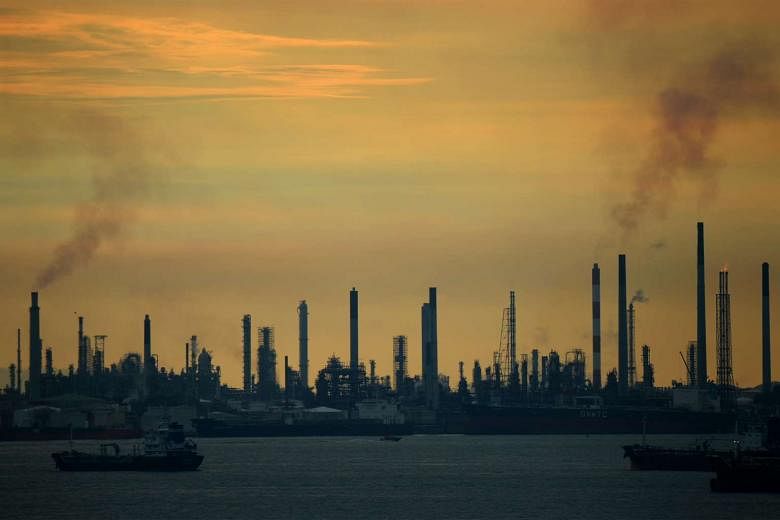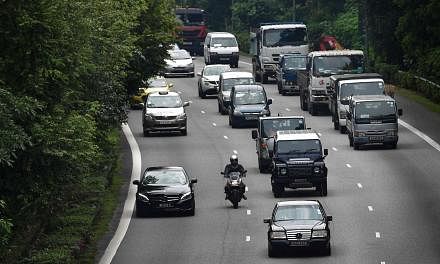SINGAPORE - Singapore will tackle climate change by targeting the industrial sector, which is responsible for about 60 per cent of the nation's greenhouse gas emissions.
From 2018, the existing Energy Conservation Act will be enhanced and made more stringent, said Minister for Environment and Water Resources Masagos Zulkifli in Parliament on Wednesday (March 8).
The Act now requires large energy users appoint an energy manager, routinely monitor and report energy use and annual emissions, as well as submit annual energy efficiency improvement plans to the National Environment Agency (NEA).
But with the changes, companies will have to ensure common industrial equipment and systems meet minimum energy performance standards.
They will also have to follow a more standardised protocol when measuring and reporting greenhouse gas emissions.
Outlining the changes during the debate on his ministry's budget, Mr Masagos said: "NEA's data shows that a substantial proportion of common industrial equipment is inefficient. Hence, Minimum Energy Performance Standards will be introduced, first for motors, and then other systems and equipment progressively.
"These practices are in line with that of leading jurisdictions and will help companies to adopt more efficient equipment, conserve energy and enjoy life cycle cost savings."
He cited electronic component manufacturer Murata Electronics Singapore as a good example. The firm is replacing 50 motors with higher efficiency ones, helping it save 160MWh of electricity a year. This amounts to annual savings of $21,000, he said.
In addition, having a structured measurement, reporting and verification system in place will help pave the way for the carbon tax scheme the Government plans to impose on power stations and other large emitters such as refineries from 2019.
Other changes to the Act entail companies expanding their facilities to factor energy efficiency into their designs upfront, as well as measure and report energy usage for key energy-consuming systems.
Under the Paris climate pact inked in December 2015, Singapore has pledged to become greener economically by reducing the amount of greenhouse gases emitted to achieve each dollar of gross domestic product by 36 per cent from 2005 levels by 2030.
It has also pledged to stop any increase to its greenhouse gas emissions by around 2030.
Said Mr Masagos: "As a responsible member of the international community, Singapore is committed to fulfilling our obligations under the Paris Agreement to reduce our greenhouse gas emissions. Both households and industry play a role in this. Industry, however, contributes the lion's share - 60 per cent - of Singapore's greenhouse gas emissions. We therefore need to focus our efforts there."







